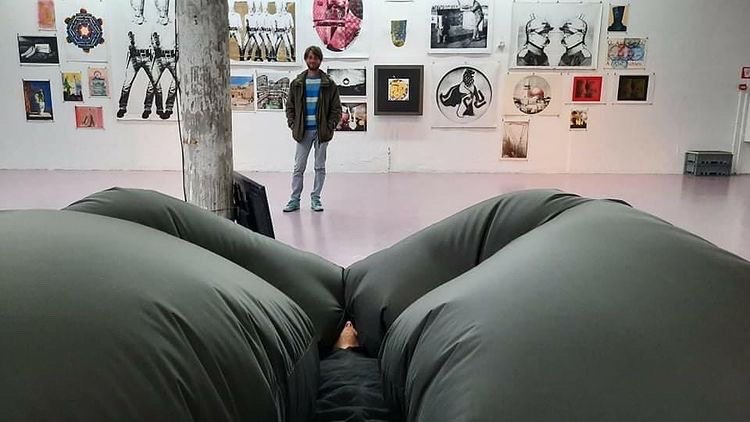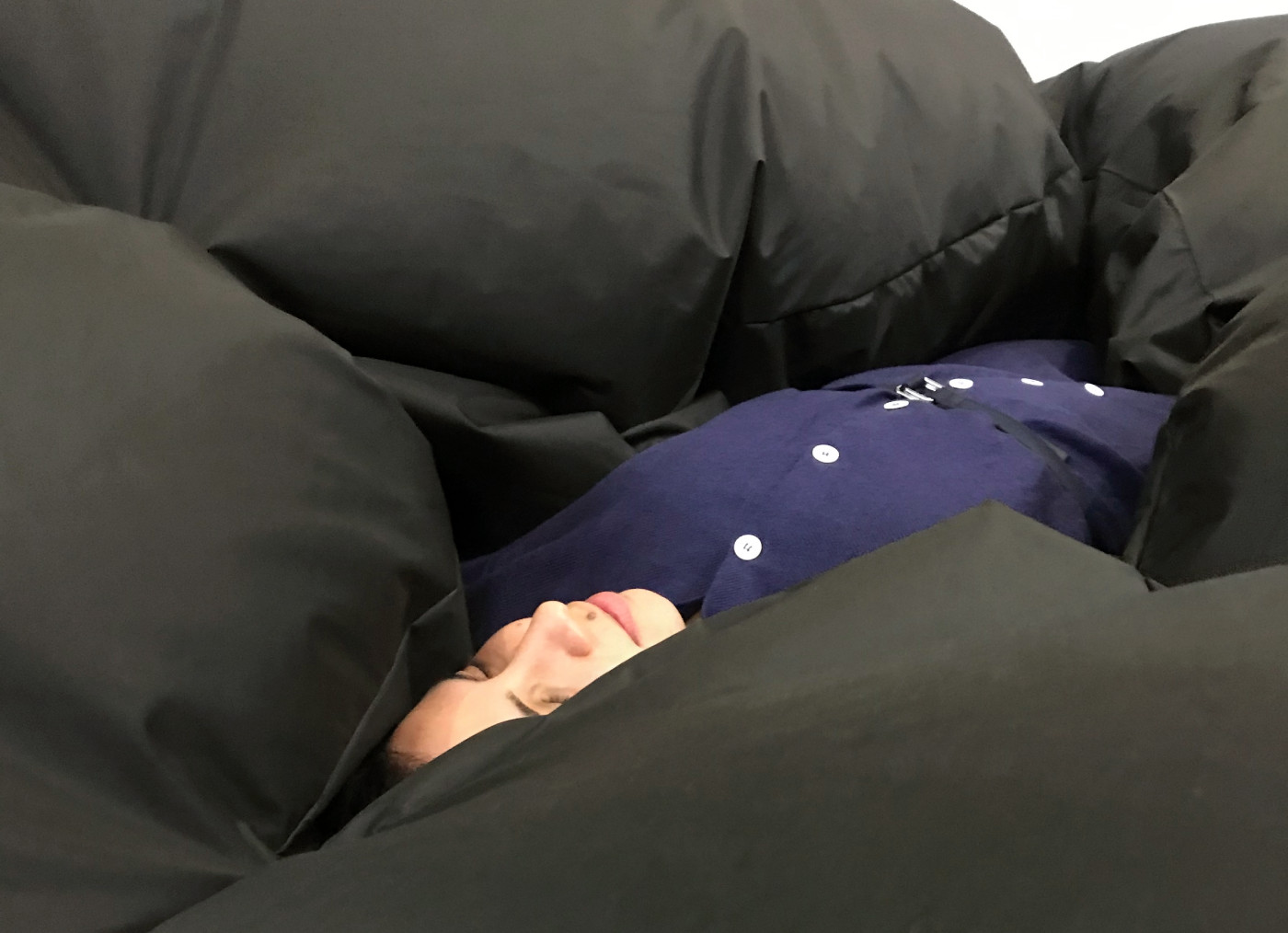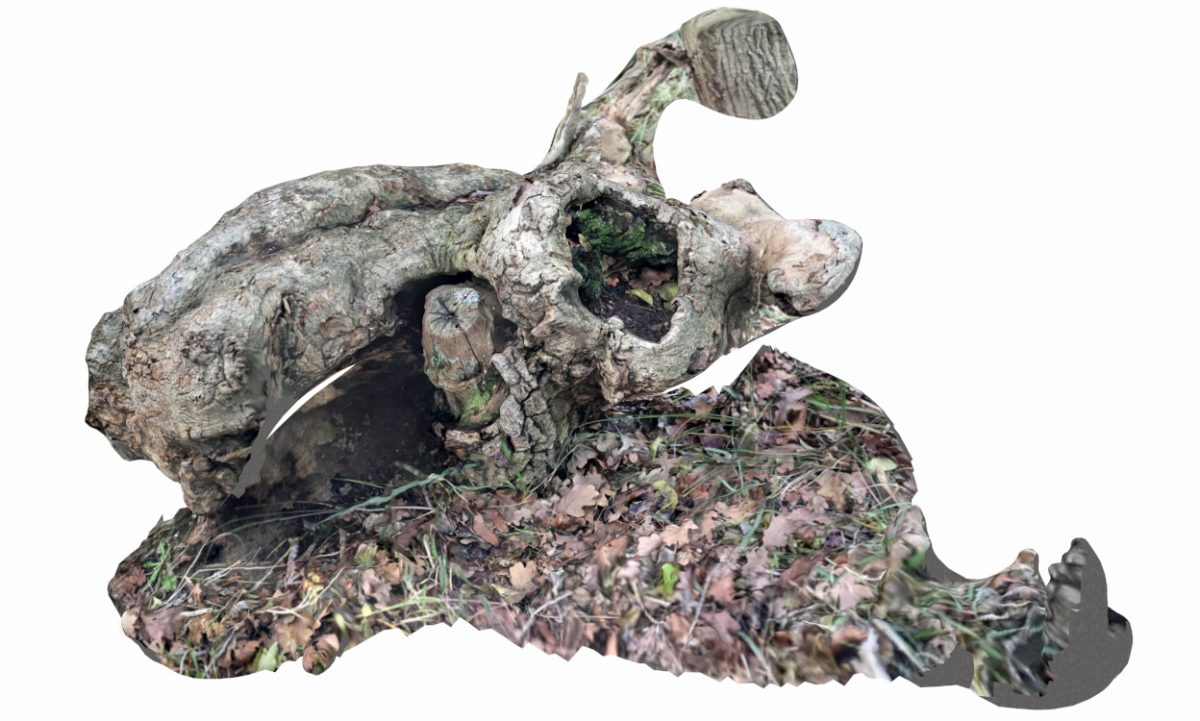Thick invites visitors for a full body embrace. In a stretched position, the participant is gently compressed by the mass of air all around the body. This process creates a controlled pressure that promotes a soothing sensation and the release of oxytocin—the hormone known for enhancing the sense of connection and comfort. The work allows for the experience of embodiment after years of touch deprivation during the pandemic. It also opens one to inhabit their body differently, in a meditative inner journey of the senses.
Thick was first shown at W139, Amsterdam, in That Those Beings Be Not Being (between October 22nd – November 28th 2021). The title ‘That Those Beings Be Not Being’ is taken from a chapter in Édouard Glissant’s Poetics of Relation, in which he argues that “we must clamor for the right to opacity for everyone”. For Glissant, ‘opacity’ is an unknowability—an alterity that is unquantifiable, a diversity that exceeds categories of identifiable difference and resists hypervisibility and the drive for total vision.
More recently, Thick was part of a research process at Theater Kampnagel, Hamburg, in the Labor (laboratory) of [in]operabilities, investigating touch as potential channel in theater, music and dance experience – open to the public on February 23rd, 2023.



Lightness, intimacy, vulnerability – from discomfort to relinquishment – participants’ accounts reveal a process of opening up, unknowingly, to a place beyond the conscious domain. The crackling sounds and the gentle motion of the textile expanding around the body contribute to the transition into another state of mind, relinquishing, giving in, in complete stillness.

Without regular contact people can become “skin hungry”, a state in which they experience less touch than they want. The few studies that have been gone into skin hunger suggest it is harmful. A survey of 509 adults from around the world in 2014 suggested that being deprived of touch was linked to loneliness, depression, stress, mood and anxiety disorders and secondary immune disorders. – ‘The pandemic made the world realise the importance of human contact‘, The Economist, Feb 20th, 2021
With thanks to Sofia Chionidou and Margarita Osipian.



